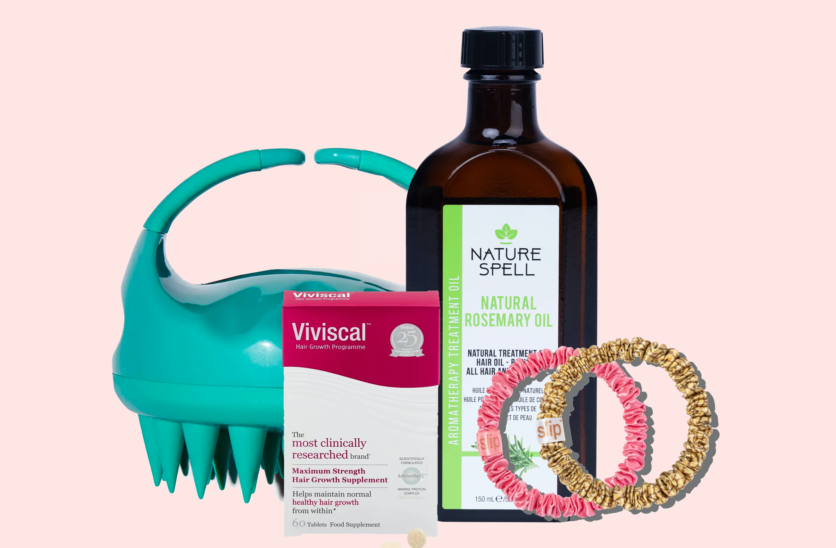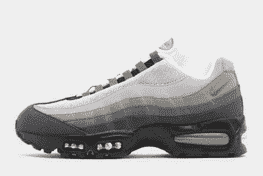Help! My Hair Is Falling Out!

I’ve always prided myself on having a full head of shiny, thick almost Pantene advert-worthy hair. Even if I’m red and sweating from a workout, have terrible bags under my eyes and spots on my chin, the one thing I won’t criticise upon looking in the mirror is my hair, so you can imagine my horror when 6 months ago my hair started falling out and thinning terribly.
I tried to ignore it to begin with, convincing myself it was part of the natural ‘7 year natural shed’ but one day, upon getting out the shower after a leisurely swim, smoothing my hair, a big clump of curls were suddenly in the palm of my hand- far more than the 80 strand a day average loss. I decided to take action, and by action I mean I began Googling. Convinced I was going through early onset menopause or had a terrifying medical condition I bit the bullet and booked a doctors appointment.
Hair loss can be the result of heredity, hormonal changes, medical conditions or a normal part of ageing. After getting a blood test, I was relieved to know everything seemed ‘normal’. My hormones were fine, as was my thyroid.
So what was causing it? I’ve just hit 35 so maybe it’s ageing? My mother retains a pretty healthy head of hair? I swim weekly but have never noticed any significant loss of hair. I also work out a few times a week, which means my hair is pulled back into a ponytail, but again, I never really saw much shedding.
I confided in my friends, one friend complained of losing almost half her hair thickness last year (this was due to postpartum hormonal changes) but the others assured me they had noticed their hair also thinning and like me, had no idea why. It also left me questioning, why on earth we had not discussed it before? My friends and I will talk about anything, from dodgy dates right down to the graphic details of giving birth, but this was something we had all experienced for months at some point, even years, and this was the first time we had mentioned it to one another.
The thing is, when it comes to hair loss there are so many potential triggers, which means it can be tricky to pinpoint the exact reason why your strands are falling out, and henceforth, how to remedy the situation. Am I stressed? Yes, always. Do I eat a nutritionally balanced diet? Sometimes. Do I take my vitamins? When I remember. Do I tie my hair back and sweat loads when working out? Yes. Do I swim in chlorine pools regularly? Yes, but I adapt my hair washing routine to suit. Has anything changed in the past year that you think could be triggering this? No. Am I getting older? Urgh… Yes.
Six months ago, I set out on a mission to regain my luscious locks (or at least attempt to stop them shedding). After embarking on this journey what I’ve realised is that there are no quick fixes because, after all, it takes approximately a month to grow 1cm of hair.
If you can relate to my (understandably first world) hair-raising situation, I’ve put together some top tips/ products that I believe have helped me and provide real results.
1. Assess Your Diet
I’m guilty of ordering a mid-week Five-Guys Deliveroo, or calling a bag of crisps from the pub and several glasses of wine dinner, but generally I like to think I eat a pretty nutritionally balanced and varied diet. I’ve taken the time to think about what I eat and thanks to a HelloFresh subscription, I have no excuse not to eat a fresh and varied diet. Hair is made of protein and eating adequate daily intake of protein rich foods is essential, as are complexed carbs (fruit, veg, whole wheat crackers etc.) which are necessary in providing our hair the energy to grow.
2. Don’t Tie Your Hair Up As Much
Whether you’re working out in the gym or playing a game of netball, we all know that having your hair loose is a no-go. I do both these things frequently and on my quest for answers I discovered that whilst tying up your hair doesn’t necessarily lead to hair loss, tying up your hair tightly for long periods of time in hairstyles like braids, buns or ponytails can contribute to noticeable hair loss. This condition is called traction alopecia, hair loss that is developed when the hair is repeatedly pulled, and can be made worse when your hair is chemically treated, or when your hair is constantly styled with hair dryers or curling irons. Early symptoms of traction alopecia can look like pimple-like bumps on the scalp. As the condition worsens over time, you might begin to see an increased loss of hair, especially from the front and side of your head. Moral of the story? Whilst tying your hair back in sporty situations is unavoidable, be more conscious of how tight you’re pulling it back and remember to give your hair some ‘downtime.’ Also of note, be mindful of what you’re securing your hair with. Whilst tight elastics do the job and hold that high pony in place, why not give your hair a bit of a break with a luxe scrunchie? Slip scrunchies are made with slipsilk and are designed to reduce damage and breakage by decreasing ‘tuggage’ on your delicate strands.
3. Rosemary Oil Scalp Massage
Don’t get me wrong, I love a massage, but was cautious about massaging my scalp in fear it would lead to more loss. I realised that since the ‘shedding’ began, I was almost scared to touch my head. Ridiculous I know. Once I pulled myself together I discovered a new life-long habit I don’t think I’ll ever be able to break. Now, before I wash my hair, I apply a few drops of rosemary oil to my scalp and gently massage using my trusty Bouclème Scalp Massager in circular motions to increase the blood flow to the scalp in a bid to promote healthy hair growth. Rosemary oil has long been the go-to essential oil for healthy strong hair – it moisturises and has anti inflammatory properties which have been proven to reduce itchiness (goodbye dandruff.) It also contains carbonic acid which helps improve cellular turnover, therefore encouraging blood circulation (vital to hair follicles) and can be used on any hair type (even colour treated) as it targets the follicle, not the strand.
4. Managing Stress
Stress is a necessary evil and without it your body and brain would be unable to react effectively when danger arises. I am definitely guilty of letting stress build and get the better of me. My stress levels can go from a constant nag in my thoughts to a bolt of panic and worry in seconds. Over the years, I’ve come to accept it’s a natural part of ‘me’ but I’ve definitely become more conscious that it’s most probably negatively impacting my life and possibly my hair! Putting my phone down in the evenings and resisting reading that work email at 7pm has been a big thing, making time to do the things that I love such as reading, not packing my weekend diary full of tasks and taking up meditation. It’s a work in progress, but I must admit, I do feel like I’ve found a bit more balance to my life.
5. Supplements
Being non-essential tissue, the hair’s nutritional requirements are unique – and supplementation can be very helpful in boosting levels of vitamins and minerals available to your follicles. But, they must be taken alongside a healthy diet for full benefit. Iron, Vitamin C, Vitamin B12, Vitamin D3, Copper, Zinc, Selenium, and the essential amino acids, L-Lysine and L-Methionine are all proven to improve hair growth. Recently I’ve been taking Viviscal – the most clinically researched brand when it comes to hair growth. These magical pills (taken twice a day) are scientifically formulated with the important nutrients Biotin and Zinc. Yes, they’re pricey, but I’ve seen real results using these.
It’s obviously difficult to pinpoint which of these changes have improved my hair health, but I’ve seen a definite improvement in growth and the shedding has almost stopped. Whilst it may take me a few years/ forever to get to Rapunzel style locks, I’m confident that this ‘problem’ will stop being one of the first things I think of when I look in the mirror, after all, there are more important things in life than hair!
Have you experienced hair loss? Got any top tips?
Let us know via our socials: (FB, IG, Twitter)
Alice @ Glorious XXX
N.B. Glorious is not affiliated with any of the mentioned products or treatments. We are not sponsored by them and do not receive any monetary gain from featuring these products. As always, we recommend seeking medial advice prior to beginning your hair growth journey!
